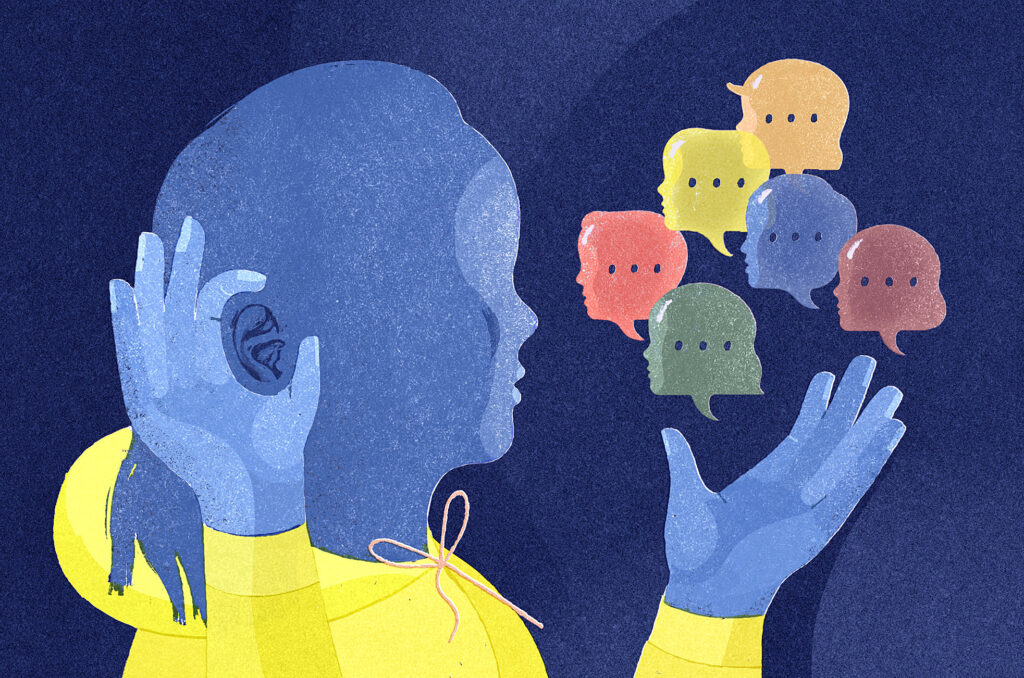Hearing Loss Threatens Mind, Life and Limb
Poor hearing is not just an annoying inconvenience.

Dec. 31, 2018
The earsplitting sound of ambulance sirens in New York City is surely hastening the day when I and many others repeatedly subjected to such noise will be forced to get hearing aids. I just hope this doesn’t happen before 2021 or so when these devices become available over-the-counter and are far less expensive and perhaps more effective than they are now.
Currently, hearing aids and accompanying services are not covered by medical insurance, Medicare included. Such coverage was specifically excluded when the Medicare law was passed in 1965, a time when hearing loss was not generally recognized as a medical issue and hearing aids were not very effective, said Dr. Frank R. Lin, who heads the Cochlear Center for Hearing and Public Health at the Johns Hopkins Bloomberg School of Public Health.
Now a growing body of research by his colleagues and others is linking untreated hearing loss to several costly ills, and the time has come for hearing protection and treatment of hearing loss to be taken much more seriously.
Not only is poor hearing annoying and inconvenient for millions of people, especially the elderly. It is also an unmistakable health hazard, threatening mind, life and limb, that could cost Medicare much more than it would to provide hearing aids and services for every older American with hearing loss.
Currently, 38.2 million Americans aged 12 or older have hearing loss, a problem that becomes increasingly common and more severe with age. More than half of people in their 70s and more than 80 percent in their 80s have mild to moderate hearing loss or worse, according to tests done by the National Health and Nutrition Examination Survey between 2001 and 2010.
Two huge new studies have demonstrated a clear association between untreated hearing loss and an increased risk of dementia, depression, falls and even cardiovascular diseases. In a significant number of people, the studies indicate, uncorrected hearing loss itself appears to be the cause of the associated health problem.
In one of the studies that covered 154,414 adults 50 and older who had health insurance claims, researchers at Johns Hopkins found that untreated hearing loss increased the risk of developing dementia by 50 percent and depression by 40 percent in just five years when compared to those without hearing loss.
An analysis of the voluminous data by Nicholas S. Reed and colleagues linked untreated hearing loss to more and longer hospitalizations and readmissions and more visits to an emergency room.
Within 10 years, untreated hearing loss accounted for 3.2 percent of all cases of dementia, 3.57 percent of people significantly injured in a fall, and 6.88 percent of those seeking treatment for depression. The percentages may seem small, but given how common these conditions are, they affect a very large number of individuals, resulting in great personal, financial and societal costs. About 85 percent of those with hearing loss are untreated, Dr. Lin said. For older adults alone, this increased health care costs by 46 percent over a period of 10 years, compared with costs incurred by those without hearing loss, the authors reported in November in JAMA Otolaryngology Head and Neck Surgery.
One of the authors, Jennifer A. Deal, an epidemiologist and gerontologist at the Johns Hopkins Bloomberg School of Public Health, said that while “hearing loss itself is not very expensive, the effect of hearing loss on everything else is expensive.”
Unfortunately, people tend to wait much too long to get their hearing tested and treated with hearing aids, and the longer they wait, the harder it is to treat hearing loss, Dr. Lin told me.
Age-related hearing loss comes on really slowly, making it harder for people to know when to take it seriously, he said. He cited two good clues to when to get your hearing tested: Family members or close friends say you should, or you notice that you often mishear or don’t know what others are saying.
But even when people are tested and spend thousands of dollars to purchase needed hearing aids, the devices often sit in a drawer. People may complain that the sound quality is poor, too static-y or otherwise annoying, and that the aids merely amplify all sound, making it still hard to hear in a noisy environment. All aids are not created equal, Dr. Lin said, and even expensive, properly fitted aids can require multiple adjustments. Some people give up too readily to get the best results.
“Unrealistic expectations are a big part of this problem,” Dr. Lin said. “It’s not like putting on a pair of glasses that immediately enables you to see clearly,” he said. “Hearing loss is not fixed as easily as eyesight. The brain needs time — a good month or two — to adjust to hearing aids. And the earlier hearing loss is treated, the easier it is for the brain to adapt.”
The new studies give ample cause for taking hearing loss seriously. Consider, for example, the link to dementia. People who can’t hear well often become socially isolated and deprived of stimuli that keep the brain cognitively engaged. As input lessens, so does brain function. There’s also a heavier load on the brain when it’s forced to use too much of its capacity to process sound. Despite what you may think, our brains are not designed for multitasking.
“Hearing loss is not a volume issue,” Dr. Deal said. “It’s a quality-of-sound issue. Certain parts of words drop out and speech sounds like mumbling. A garbled message is sent to the brain that it has to work harder to decode.”
In addition, when information is not heard clearly, it impedes memory. “A good clear auditory signal is more easily remembered,” Dr. Deal said. “The key to memory is paying attention. The brain can’t stay focused on the words when it is working overtime to decode the signal.”
With respect to falls, she said, hearing loss often goes hand-in-hand with balance issues. “Even when we don’t realize it, we’re using our ears to position ourselves in space,” she explained. Also, when people can’t hear well, they are less aware of sounds around them. They may fall when startled by someone or something that seems to come silently from behind.
Dr. Deal said she and her co-authors were surprised to find a link between poor hearing and cardiovascular disease. “It could be that vascular disease is common to both,” she said, but added that social isolation and stress resulting from hearing loss are also likely to play a role.
——————
There’s good news for New York City residents, among whom noise pollution is the leading municipal complaint. By 2011, all of the more than 10,000 police department vehicles were switched to lower-frequency “rumbler” sirens, which are 10 decibels quieter, and the fire department has begun using them too.
The next step is to get less shrill sirens for the more than 2.5 million ambulance calls in the city every year. The Mount Sinai Health System is testing the two-tone sirens that make an “ee-aw” sound commonly heard in Europe, and the Greater New York Hospital Association has begun testing rumbler sirens for its ambulances.Jane Brody is the Personal Health columnist, a position she has held since 1976. She has written more than a dozen books including the best sellers “Jane Brody’s Nutrition Book” and “Jane Brody’s Good Food Book.”

